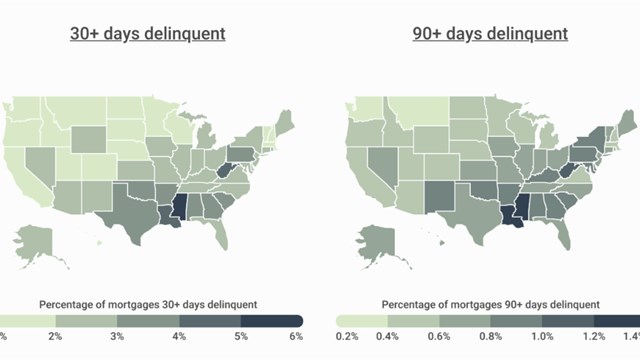
NOTE: The following is content submitted to The Cooperator from a professional contributor, and reflects that contributor's opinions, experience, and expertise.
Board members and shareholders of cooperatives (co-ops) and condominiums (condos) are advised against -- and in most circumstances prevented from -- meeting in person to comply with social distancing mandates in New York. New amendments to the New York Business Corporation Law (BCL) address this issue, giving boards and shareholders the option to meet virtually or conduct business via teleconference or similar methods, even if a co-op’s or condo’s bylaws do not provide for such measures.
Governor Cuomo’s Executive Order No. 202.8, dated March 20, 2020, provides relief for boards concerned about complying with their governing documents regarding in-person shareholder meetings while protecting the health and safety of directors and shareholders. The executive order temporarily suspends subsection (a) of Section 602 and subsections (a) and (b) of Section 605 of the BCL “to the extent they require meetings of shareholders to be noticed and held at a physical location.” The Executive Order is effective through April 19, 2020.
Although the BCL traditionally applies only to co-ops, courts have applied the concepts contained in the BCL to condominiums by analogy for decades. We take the position that courts would do the same here, and therefore are guiding our condo board clients that, especially during the COVID-19 crisis, condos may follow these BCL provisions allowing board and unit owner meetings to take place virtually to facilitate carrying on their governance.
Meetings of Shareholders & Unit Owners
If a co-op’s bylaws explicitly require in-person shareholder meetings, the most conservative course of action would be to postpone them until after the COVID-19 health crisis subsides. It is our recommendation that boards postpone any shareholder meetings, including the annual meeting, unless critical business needs to be conducted requiring a shareholder vote. Section 602(c) of the BCL explicitly states that “a failure to hold the annual meeting on the date so fixed or to elect a sufficient number of directors to conduct the business of the corporation shall not work a forfeiture or give cause for the dissolution of the corporation …” Even if such postponement is challenged, there are no foreseeable monetary damages. If an owner sues the board based upon the board’s failure to call a meeting, the most he or she can accomplish is to cause the board to call a meeting under section 603 of the BCL. Bottom line: There will be no liability to the board for postponing the annual shareholder meeting.
However, if postponement is not an option, there are other means available. According to newly amended section 602 of the BCL, a co-op board can authorize a virtual shareholder meeting and/or electronic voting. For both of those options, the boards must provide reasonable measures to give shareholders the ability to participate and/or vote. Section 602 requires that boards (A) implement reasonable measures to verify that each person deemed present and permitted to vote at the meeting by means of electronic communication is a shareholder of record, and (B) keep a record of any vote or other action taken by a shareholder participating and voting by means of electronic communications at a shareholders' meeting. A shareholder participating in a shareholders’ meeting by this means is deemed to be present in person at the meeting.
Board Meetings
If the bylaws are silent or do not specifically require in-person board meetings, board meetings may be conducted remotely. Section 708 of the BCL was also recently amended to permit virtual or telephonic board meetings. Specifically, any one or more members of a board or any committee may participate in a meeting of such board or committee by means of a conference telephone or similar communications equipment allowing all persons participating in the meeting to hear each other at the same time. Participation by such means constitutes presence in person at a meeting. As long as all board members can be heard, boards are able to conduct meetings virtually or by teleconferencing, or similar means.
Section 708(b) of the BCL also permits boards to take actions without a meeting so long as there is unanimity among the board members as to such action. Unless otherwise restricted by the certificate of incorporation or the bylaws, boards are authorized to take any action required or permitted to be taken by the board or any committee thereof without a meeting if all members of the board or the committee consent in writing to the adoption of a resolution authorizing the action. The resolution and the written consents of the board or committee must be filed with the corporate minutes.
If the bylaws require in-person board meetings, postponement of board meetings is the most conservative approach. However, we understand that boards need to take action during this crisis and believe that courts will likely understand that necessity. Therefore, boards that meet virtually or take action without a meeting during this crisis should document the necessity of their meetings and the decisions made. In the event a board’s actions taken at a virtual meeting or without a meeting are challenged, boards can subsequently ratify these virtual decisions at their next in-person meeting. If challenged in court, and the business judgment rule does not shield the board’s decision from judicial scrutiny due to failure to follow the governing documents, at least the decision to hold the meeting virtually would likely be held reasonable.
Leni Morrison Cummins and Jennifer D. Miller are attorneys with Cozen O'Connor, a full-service law firm with offices in 28 cities in the US and the UK. This advisory is offered as a service to clients and friends of Cozen O'Connor and The Cooperator, and is intended as an informal summary of certain recent legislation, cases, rulings and other developments. This advisory does not constitute legal advice or a legal opinion and is not an adequate substitute for the advice of counsel.









Leave a Comment